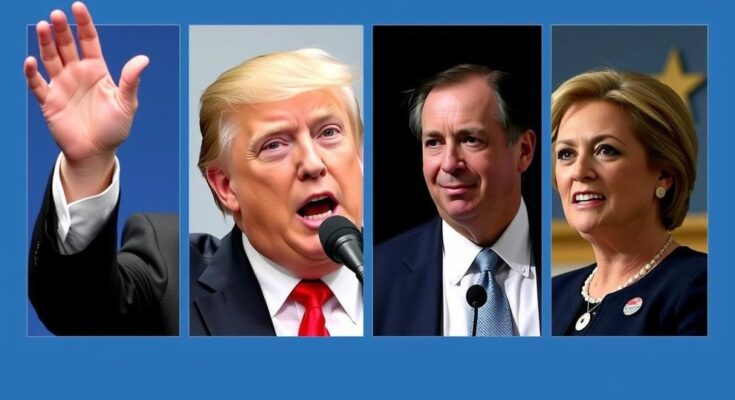Democratic governors, previously critical of President-elect Trump, are now seeking to establish cooperative relationships with his administration. Balancing advocacy for their values with the need for collaboration, these leaders aim to ensure state interests are represented amidst a politically charged environment. Their evolving strategies illustrate a significant shift in the party’s approach post-election, navigating the complexities of governance under a Republican president.
Recently, several prominent Democratic governors have shifted their approach towards President-elect Donald Trump, moving from a strictly adversarial stance to one of cautious collaboration. Initially, these governors openly criticized Trump during his campaign; however, now they recognize the necessity of working with his administration for their states’ benefit. New Jersey Governor Phil Murphy articulated this balancing act, emphasizing the importance of defending core values while seeking common ground on shared priorities.
Similarly, New York Governor Kathy Hochul, who previously denounced Trump, expressed a willingness to collaborate on infrastructure projects despite pledging to protect reproductive rights. She noted the potential for cooperation, stating, “There are areas where we can work together, like infrastructure where we rely on federal money.” This sentiment reflects a strategic pivot among Democratic leaders aiming to either mitigate the impacts of Trump’s policies or leverage opportunities for state interests.
In contrast, some governors, such as Gavin Newsom of California, opted for a more combative posture due to Trump’s history of governance. Newsom has sought additional funding to prepare for legal confrontations with the Trump administration, seeking to safeguard California’s progressive policies. Despite these challenges, governors like Illinois’s J.B. Pritzker and Colorado’s Jared Polis also formed a group dedicated to preserving democratic institutions, illustrating the tension between cooperation and resistance within the party.
Michigan Governor Gretchen Whitmer has taken a wait-and-see approach, focusing on identifying shared goals with the incoming administration. Likewise, Massachusetts Governor Maura Healey has toned down her previously strong criticism, indicating a willingness to assess Trump’s policies broadly before adopting any definitive stance. This collective adjustment among Democratic governors symbolizes a significant shift reflecting the political reality following the election result, as they weigh their party alignment against practical governance.
As they navigate this complicated landscape, these leaders are grappling with how best to maintain party integrity while addressing the needs of their states in a politically charged environment. The evolving nature of their responses illustrates a pivotal moment for Democratic leadership in the face of Republican control at the federal level.
The article discusses the changing dynamics between Democratic governors and President-elect Donald Trump following the recent election. Initially, these governors were vocal critics of Trump, highlighting perceived threats his policies posed to their constituents and core Democratic values. However, post-election, there is a realization among these governors regarding the importance of establishing a working relationship with Trump’s administration. They recognize both the necessity of collaboration to secure state interests and the need to stand firm in defending their progressive principles. This transitional phase reflects a broader strategy among Democrats as they adapt to the political landscape.
In summary, the article presents a significant pivot among Democratic governors from a confrontational stance against Donald Trump to one of cautious engagement. While many governors express a willingness to find common ground, they also remain committed to defending their core values and principles. The emerging strategies highlight the complicated balance these leaders must strike in order to further their state interests while navigating the challenges posed by a Trump administration.
Original Source: apnews.com



